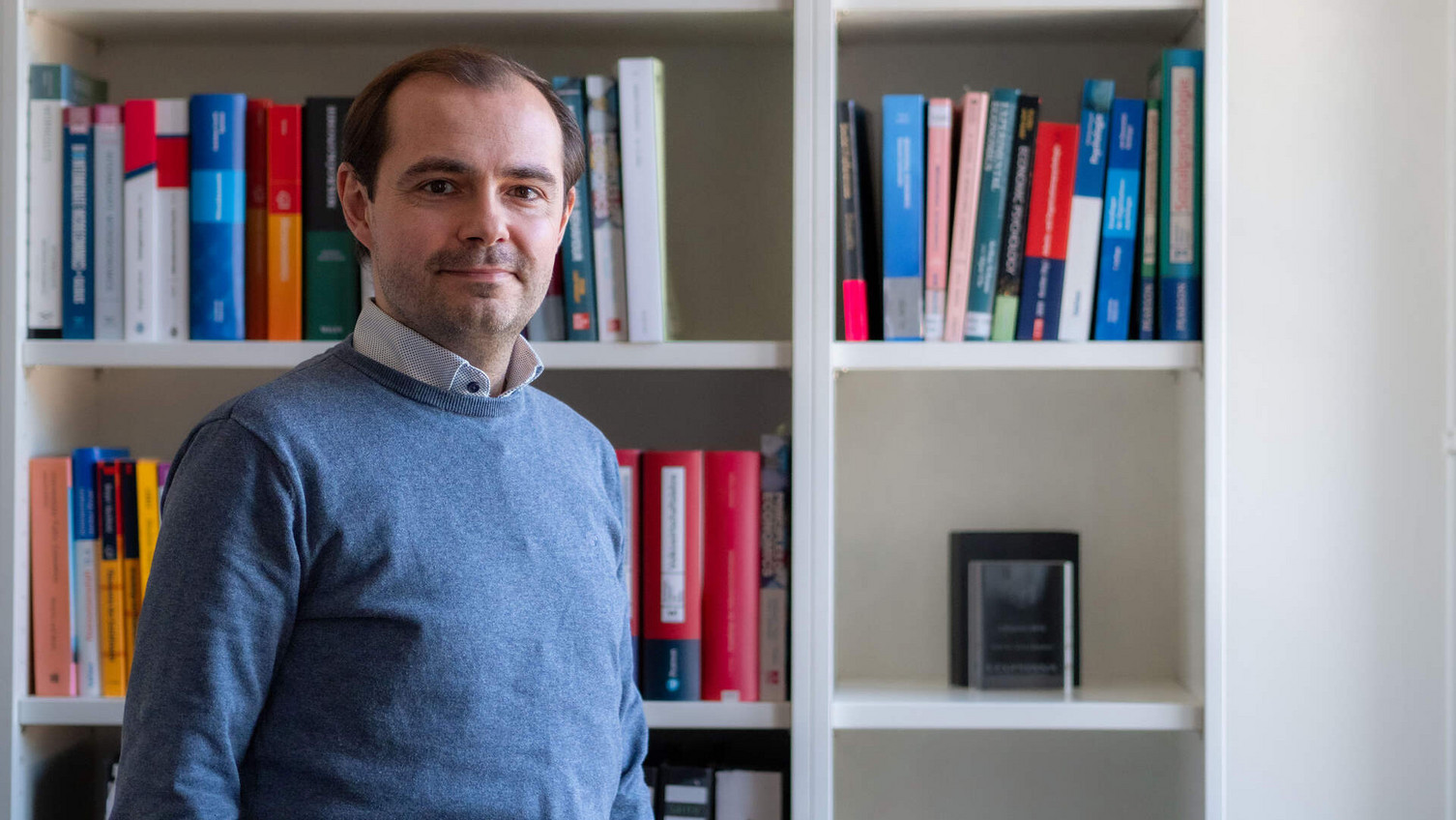New Master's programme Public Affairs and Economics starts in the winter semester
2024-04-29 With this study programme, the Faculty of Political Science addresses current social issues and, thanks to its focus on empirical methods, also prepares students for doctoral studies. Dr Mario Mechtel, Professor of Economics, in particular Empirical Microeconomics, presents the interdisciplinary Master's programme in an interview.
- Professor Mechtel, the new Master's programme specifically combines public affairs with economics. Why are you focussing on this?
With the new programme, we are placing a strong focus on economics. Students also choose a profile area: Political Studies, Sustainability Studies or Finance Studies. This allows them to look at topics that are important for economists and are addressed in the economics modules from different perspectives. The programme is not only aimed at prospective students who have a Bachelor's degree in Economics. The interdisciplinary approach also makes "Public Affairs and Economics" interesting for graduates of political science, business administration or sustainability studies, for example.
- How closely are teaching and research interlinked in the degree programme?
In terms of content, we have three modules in the third semester, each of which covers one of the main research areas of economics in Lüneburg: firstly, the future of work, for example with regard to digitalisation, automation or working from home. Secondly, a behavioural economics perspective on transformation processes such as climate change, digitalisation or demographics. And thirdly, macroeconomics and international economic policy. The close link between our research and the content of the Master's programme offers an excellent starting point for a doctorate. If students are interested in one of the research specialisations, they are immediately put in touch with the relevant colleagues from the professorial staff. In recent years, we have created a very interesting perspective here, particularly through the establishment of the Lower Saxony-wide doctoral college "Behavioural Economics and Social Transformation". Outstanding Master's students, for example, can already take part in individual modules of the doctoral programme.
- Your application for a cross-university "Behavioural Economics and Social Transformation" research area has just been approved. What advantages does this have for the study programme?
Our "Science Space" is an association of behavioural economists who work at seven universities in Lower Saxony and a Fraunhofer Institute. In terms of content, we cover the topics just mentioned. We receive funding from the Volkswagen Foundation, which will flow into improving teaching and transfer in addition to research. Specifically, the expansion of the doctoral programme offers very good Master's students the opportunity to attend individual courses at an early stage. We also want to cooperate in the supervision of Master's theses in particular. This means that if students with a perspective towards behavioural economics research want to write their Master's thesis in an area that is not covered at Leuphana but is covered at one of the partner universities, they can choose a supervisor from one of the other universities. We are also planning numerous transfer activities, including those aimed at state and local politics, so that students will also have additional practical contacts and we take the title of the degree programme "Public Affairs and Economics" literally.
- Why do you place particular emphasis on the research orientation of the Master's programme?
We have a strong empirical focus. The availability of data has exploded, especially in recent years. Our focus is on enabling students to know, analyse and understand this data - and then to communicate the findings. The programme includes modules on quantitative and experimental as well as qualitative methods. Our graduates are then familiar with the state of the art of empirical economic research. This also provides them with excellent preparation for a subsequent doctorate.
- How do students who do not want to go into research benefit from the knowledge of methods?
Everyone is talking about big data. It is becoming increasingly important to know how to handle data. Our graduates are qualified to make better, evidence-based decisions in organisations, for example. They can work in all kinds of business sectors where data plays a role and an understanding of causal relationships is required. Of course, the path to international organisations, NGOs or central banks is also open to them.
- Thank you very much for the interview!

